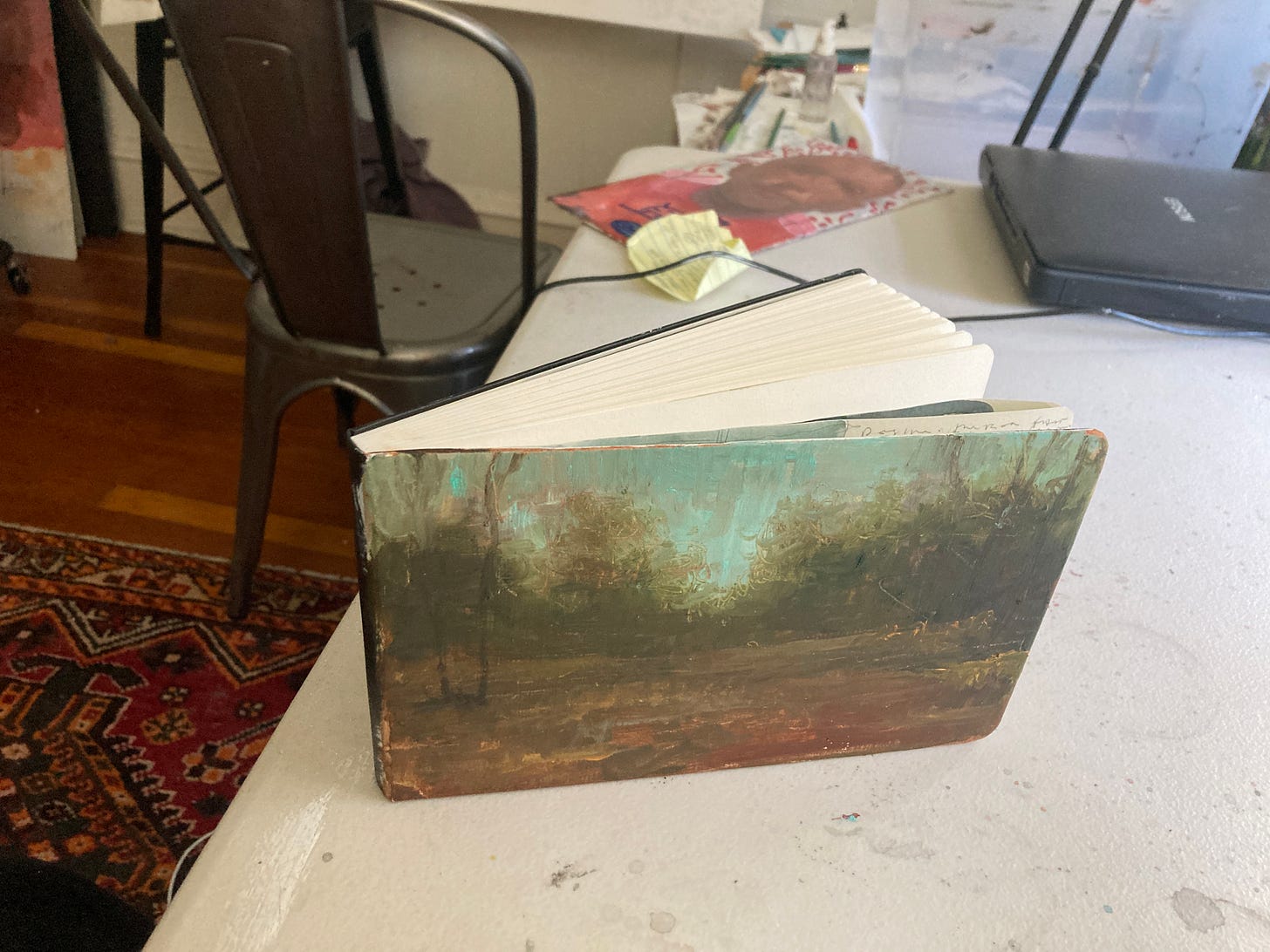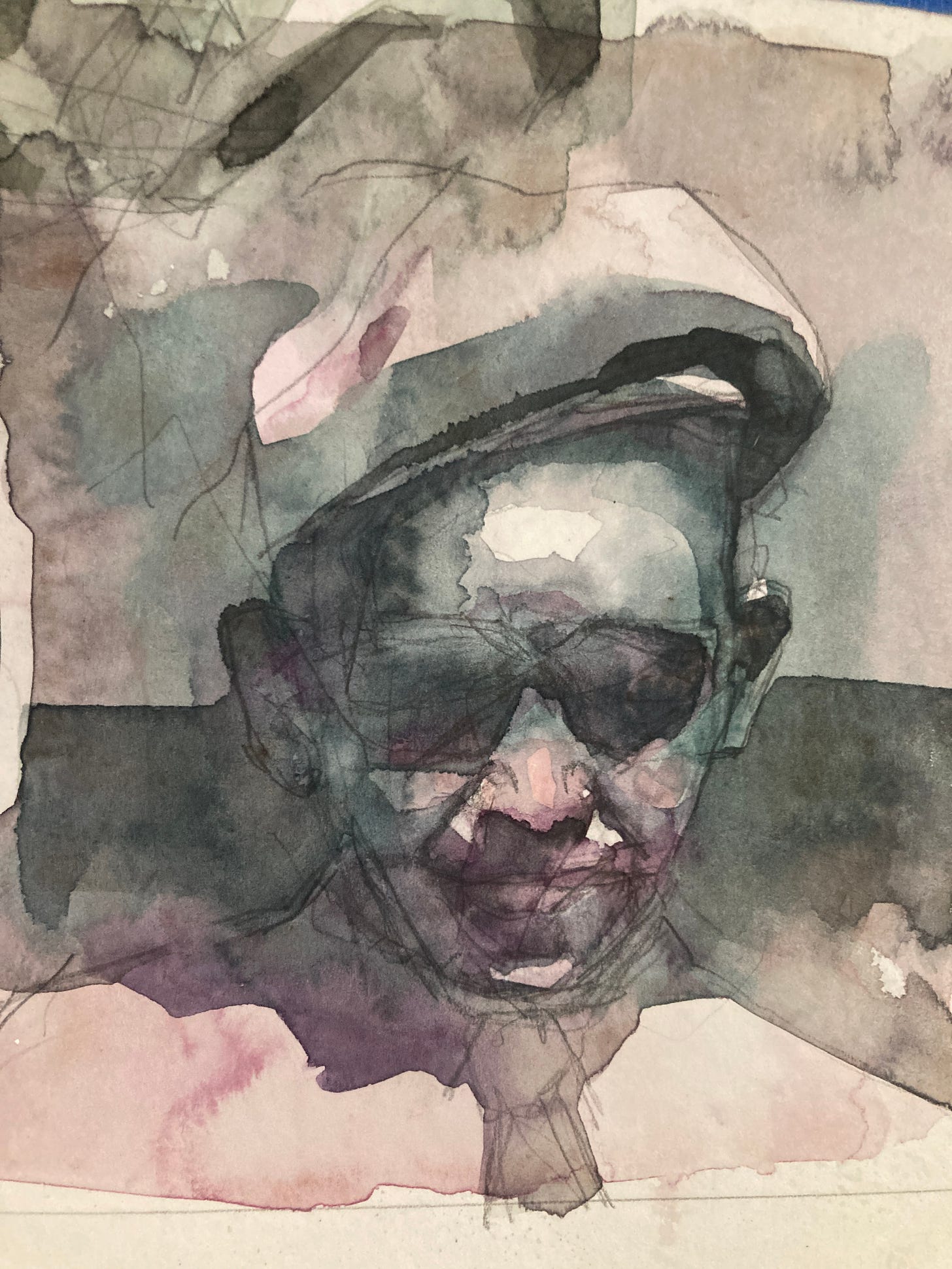[This is part of a short class I’m teaching to mostly high school age kids and still very much a work in progress. Illustrations are just various photos from sketchbooks and studio. I don’t mind blunt feedback!]
You're probably wondering about the title. I'll get to the point: Imagination sucks.
Why do people hate large groups of people they've never met? Why do people vote for obvious criminal psychopaths? Why do billionaires feel like they never have enough money? What keeps us up at 3am when we are otherwise completely safe and comfortable?
Imagination.
Like most people, I grew up thinking about imagination in terms of superheroes, rainbows, wizards, etc. We cling to that view of imagination because we like to think of imagination as something that children have, and that grown-ups do not.
But do we escape imagination by getting older? Will we eventually stop playing with our toys and see things as they truly are? Will we put aside imagination and start paying some bills in the real world and worrying about interest rates and stuff?
Sorry. There is no escape from imagination, or at least, I've never seen it. But who knows (we’ll discover lots of people who think otherwise in this series). But for now, I’m convinced that everything we think or feel or experience or even perceive with our naked eyeballs can’t help but be colored or flavored by imagination. In fact, if something doesn't fit into our imagined story, we're likely to not see it at all. From our earliest conscious thoughts to the last breath we take, we are living in a world of imagination of which most of us are barely aware.
We don’t have imaginations, imagination has us.
Well, for something this important, at least we are taught about it in schools and grown-ups have a way of navigating through this to cause the least amount of damage, right? I'm sure we as a society are super careful about something this powerful, right???
Well, sorry again. Studying imagination and our collective experience of it used to be a major focus of education, but is now deemed a useless luxury. It is still studied- but by people who want to manipulate you into buying things or believing things or keep scrolling. The truth is, when it comes to imagination, the job of 99% of us is to be nothing more than passive consumers of it. We go through our entire lives living out other people’s fantasies, all the while convinced that our culture is uniquely overflowing with creativity.
I don’t mean to bring you down- but this what we’re up against.
In this series, I promise to be honest with you about imagination and tell you about both the good and the bad (and there is a lot of good I promise). But with something this big, where to start?
I think the best way is to try and figure out how we got here. And that means looking into the history of how people thought about imagination and examining the ideas they've handed down to us and which we've unconsciously adopted. This may also help us to understand how we can do it differently.
Imagination, we will learn, may suck, but there's no point in trying to avoid it. Bottom line: We need to do it better, and we can. A big part of that process is that we need to get out of our therapeutic closets, narcotic hazes, and vampiric screens and do this together, somehow, even if it just means developing some way to just talk about it without descending into anger or self-righteousness. We grown-ups have failed in this task, maybe you will do better?
By the end of the series, I promise you'll be more grown-up than most grown-ups when it comes to imagination. And hopefully, you'll lead a richer, deeper life. You'll probably also be a little tormented and confused, but if you're the kind of kid who read this far, you'd be that anyway, so it all shakes out.






